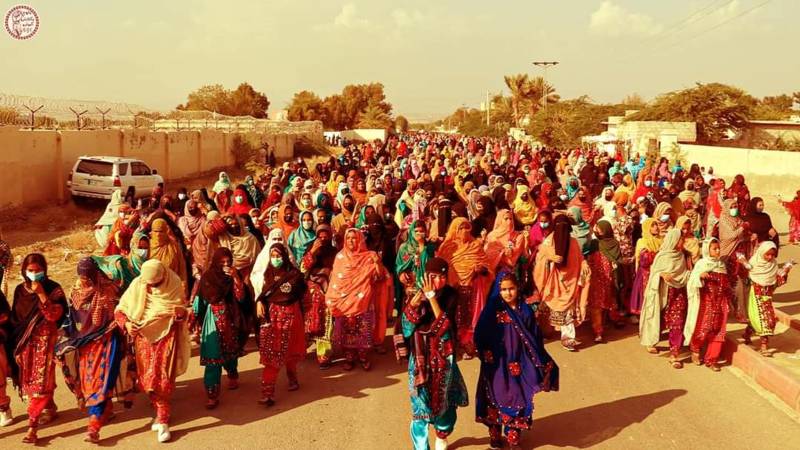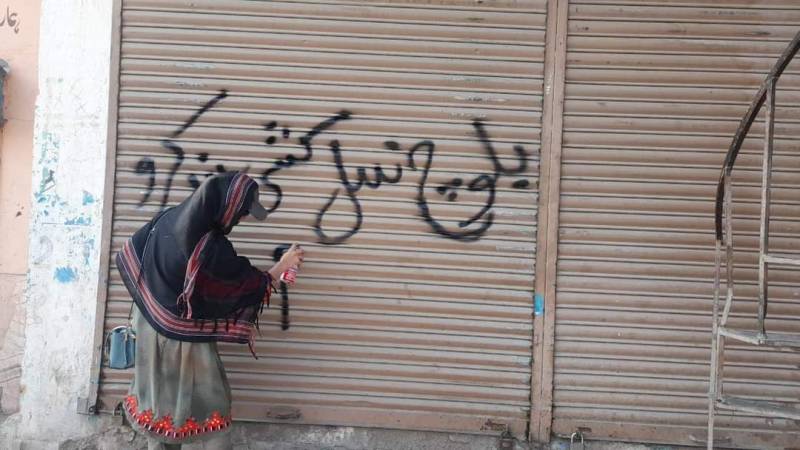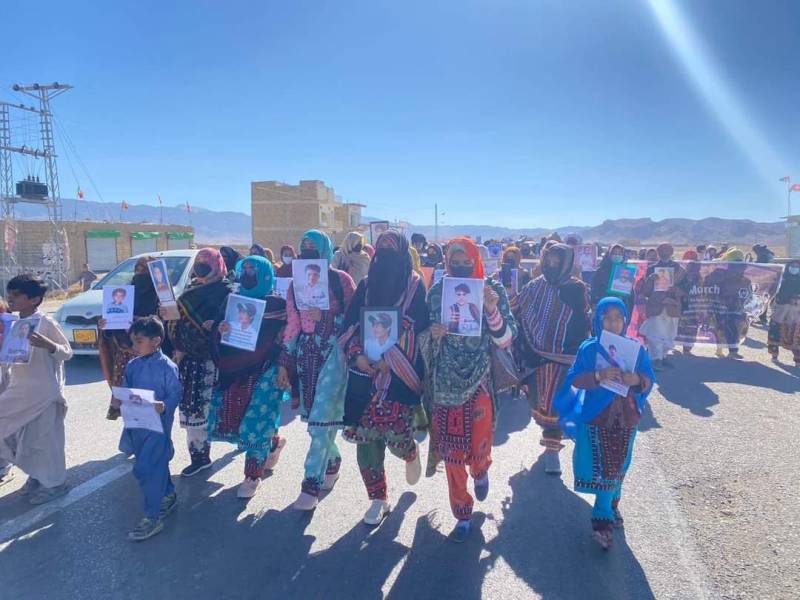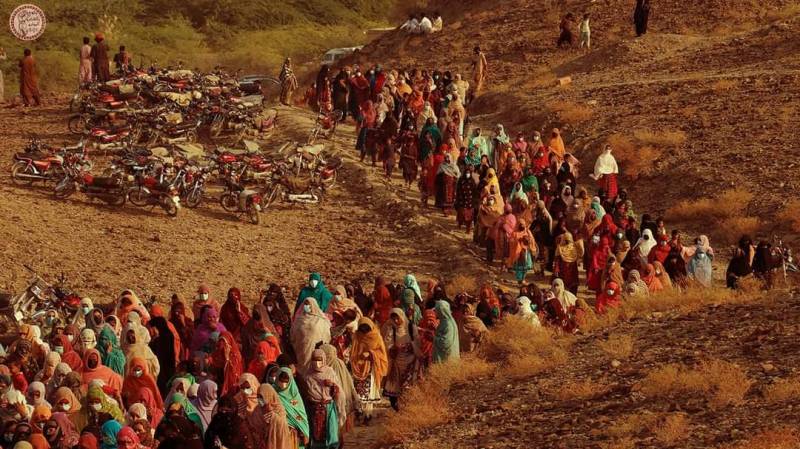
In the desolate mountains of Balochistan, where silence often dominates the rugged landscapes, the voices of resistance rise above the echoes. Amidst the vast expanse, it's the Baloch women who paint the canvas of defiance, chanting slogans, spraying walls with vivid colours proclaiming, "Resistance is life," and holding up poignant pictures of their missing loved ones.
From the sparsely populated villages dotting the Balochistan region to the bustling cities of Quetta, Karachi, and Islamabad, the strength and resilience of Baloch women have become a force to be reckoned with. Their cries for justice, an end to enforced disappearances, and the recovery of Baloch missing persons pierce through the air, leaving an indelible mark on the ongoing struggle.
On the front lines, these women are not just vocal advocates, they are the embodiment of unwavering strength. They face physical obstacles, enduring being dragged, beaten, detained, and threatened, yet their resolve remains unshaken. Like the mountains that surround them, the Baloch women stand firm in their quest for justice.

In this narrative of resistance, a powerful symbolism emerges, a reminiscent echo of one Karima, the symbol of resistance and the voice of the Baloch nation who was tragically silenced. Today, that one Karima has multiplied into thousands. Baloch women have become the faces of an enduring struggle, a testament to the unyielding spirit of a nation.
The journey of resilience recently manifested in a long march led by Baloch women, starting from Turbat and culminating in Quetta. This marks the first phase of a larger movement, as the march now sets its sights on Islamabad. Their demands are clear. an end to enforced disappearances in Balochistan and the safe return of all missing persons.

As these women traverse long and challenging roads, their steps resonate with the echoes of history, reinforcing the narrative that Balochistan's strength lies in the resilience of its women. The long march is not just a physical journey but a symbolic one, traversing the path from silence to advocacy, from despair to hope, and from isolation to a collective voice demanding justice for the disappeared.
In the vast expanse of Balochistan, where the echoes of struggle resonate through the rugged landscapes, it is the Baloch women who emerge as the unsung heroes, the face of resistance against the backdrop of an ongoing human crisis.
Historically, Baloch women have been the custodians of culture, breathing life into traditions through their handicrafts and the vibrant hues of Doch, the traditional clothing they wear. However, in a world where women often lead movements for their rights and gender equality, Baloch women carve a distinct narrative, they stand at the forefront, not for themselves, but for their men.
In a poignant display of strength, Baloch women are taking to the streets, leading protests, organising long marches, and confronting authorities in front of press clubs. Their voices rise in unison, demanding justice for their missing brothers. Through slogans, wall chalkings, and the haunting images of their loved ones held in trembling hands, these women are the embodiment of resilience.

They are not just the face of resistance, they are history makers, echoing the legacy of Sammi, a prominent figure in Baloch history from centuries ago. Sammi, a wealthy woman with hundreds of cattle, waged a war against the invading tribe led by Sardar Beebager. In her fight for justice, the first Baloch guerrilla fighter, Balach, etched his name in history by defeating Beebager.
Fast forward to the present day, another Sammi rises, a social activist and daughter of a missing person. Leading the charge for justice, she began her struggle for her father's recovery but has now become a beacon for all Baloch missing persons' families. The recent long march from Turbat to Quetta, spearheaded by Sammi Baloch, signifies a collective plea for the release of the abducted and justice for those who never returned.
Balochistan, often dubbed an "information black hole," hides a grim reality where hundreds of political activists, students, and Baloch individuals have gone missing. The region is in the midst of its fifth insurgency since the assassination of Nawab Akbar Bugti by then-Army dictator General Pervez Musharraf. In this landscape, Baloch women like Sammi Baloch emerge as symbols of resistance, voices that refuse to be silenced in the face of adversity. They are not just challenging the status quo, they are rewriting the history of Balochistan, echoing the strength and determination of their ancestors who stood against injustice centuries ago.

